Last update January 2, 2026
Japanese Food - Yōkan -




Yōkan
[yooh-kah-n]
ようかん, 羊羹
Bean Paste Jelly
Yokan is a traditional Japanese sweet that dates back to the Kamakura (1192-1333) Period or Muromachi (1334-1573) Period, with roots in China. Its primary ingredient is An (sweet bean paste) and Kanten (seaweed jelly). So, if you know the meaning of the kanji “羊羹”, you will wonder how sheep (羊) and a thick soup (羹) are related to the sweets. I did some digging, and here’s what I’ve found. As these kanji letters indicate, the origin of Yōkan was a Chinese soup boiled with mutton (which didn’t taste sweet). It evolved into a sweet food after being introduced to Japan, and a record from the Edo Period (1603-1868) suggests that it was made from beans and sugar. Yōkan is broadly classified into two types: Neri Yōkan and Mizu Yōkan. Even though the words “Neri” and “Mizu” mean “knead” and “water”, respectively, they don’t directly refer to the methods of preparation. The difference between the two lies in the amount of Kanten added, and the first has a harder texture because it uses more of the ingredient than the latter. The type dubbed “Mushi Yōkan” is a product made by steaming, added with wheat flour and Kuzuko (Kudzu plant starch powder). There is also a lower-priced version called “Decchi Yōkan” in Kyoto and Shiga prefectures, which means an affordable Yōkan even Decchi (young apprentices to merchants or craftsmen) can buy.
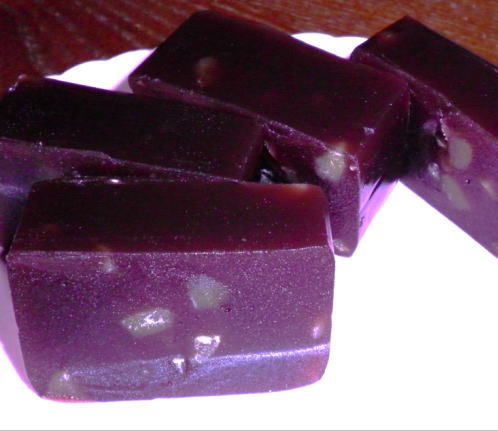
A typical Yōkan product.
|
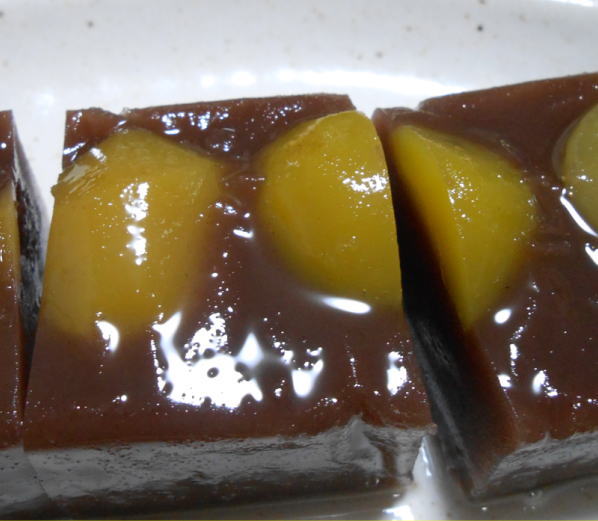
Kuri Yōkan or chestnut Yokan.
|
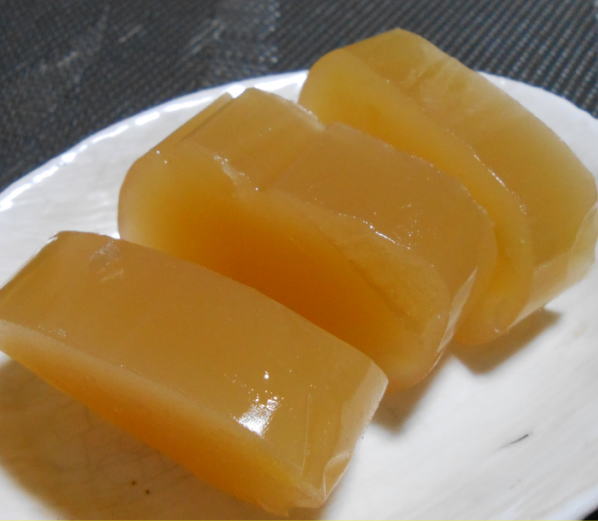
Another type of Kuri Yōkan blended with chestnut paste.
|
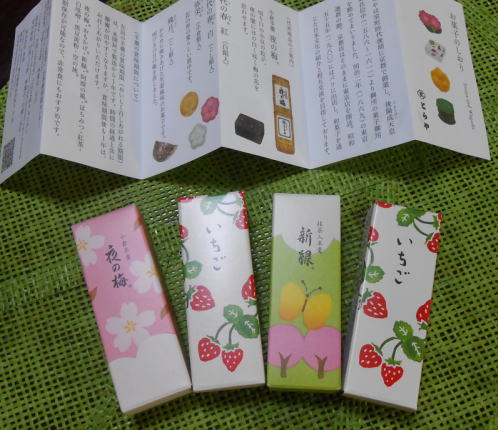
Yōkan products from famous Toraya shop in Kyoto.
|
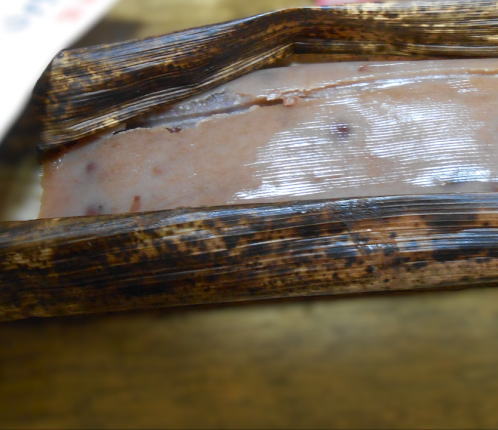
Decchi Yōkan wrapped in bamboo leaves.
|
|

A typical Yōkan product.

Kuri Yōkan or chestnut Yokan.

Another type of Kuri Yōkan blended with chestnut paste.

Yōkan products from famous Toraya shop in Kyoto.

Decchi Yōkan wrapped in bamboo leaves.
|
|



